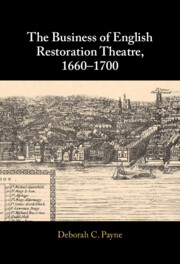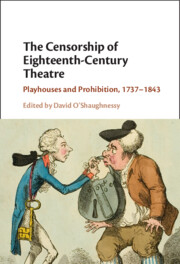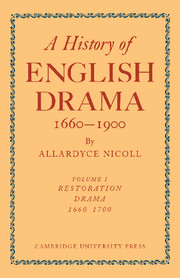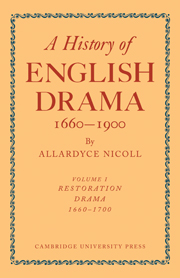The Business of English Restoration Theatre, 1660–1700
Deborah C. Payne's ground-breaking study traces the historical origins of a dilemma still bedevilling theatre companies: how to reconcile audience demand for novelty with profitability. As a solution, English acting companies in 1660 adopted an unprecedented theatrical duopoly. Implicit to its economic logic were scarcity, prestige, and innovation: attributes that, it was hoped, would generate wealth and exclusivity. Changes to playhouse architecture, stagecraft, dramatic repertory, and company practices were undertaken to create this new, upmarket theatre of “great expences.” So powerful was the promise of the duopoly and so enthralling the wholesale transformation of the theatrical marketplace that management—despite dwindling box office—resisted change for 35 years. Drawing upon network and behavioural economic theory, Professor Payne shows why the acting companies clung to an economic model inimical to their self-interest. Original archival research further bolsters this radically new perspective on an exciting and crucial period in English theatre. This title is also available as Open Access on Cambridge Core.
- Compares the Restoration to the Shakespearean and to the contemporary French stage to emphasize the roles of agency and contingency in the making of the Restoration stage
- Reconceptualises theatre as one of several pastimes and commodities newly available in the Restoration to show how the acting companies both responded to and resisted a culture of consumer choice
- Accessibly narrates a complex, revisionist theatre history that draws upon archival research and economic theory to present a radically new take on this period of English theatre
- This book is also available as Open Access
Reviews & endorsements
‘In Deborah C. Payne's richly detailed book, the culture of Restoration Theatre emerges as a complex, dynamic blend of aristocratic patronage and market economics. No other study joins those twin contexts with such expert conviction. This study will be a key reference point for anyone curious to know more about how the Restoration Stage fought to establish itself in an increasingly frantic cultural marketplace.' David Roberts, Birmingham City University
‘The Business of English Restoration Theatre, 1660–1700 combines rich original argument, dazzling archival research, and elegant, witty prose to reveal the historical contingency of the 'indisputable brilliance' of Restoration drama – its canny practices as both ‘elite theatre' and ‘tough business.' This book has rearranged all sorts of 'facts' I thought I knew well, introducing me to a persuasively fascinating new world.' Cynthia Wall, University of Virginia
Product details
October 2024Adobe eBook Reader
9781009398220
0 pages
This ISBN is for an eBook version which is distributed on our behalf by a third party.
Table of Contents
- 1. The theatre as gift: networks, patronage, and personality
- 2. The economics of scarcity and prestige: performance practices and repertory
- 3. The culture of improvement and 'great expences': neighborhoods, playhouses, and stagecraft
- 4. Not keeping up: rival commodities, pastimes, and entertainments
- 5. Fame and famine: writing for the stage
- 6. Stardom and sedulousness: acting for the stage.






